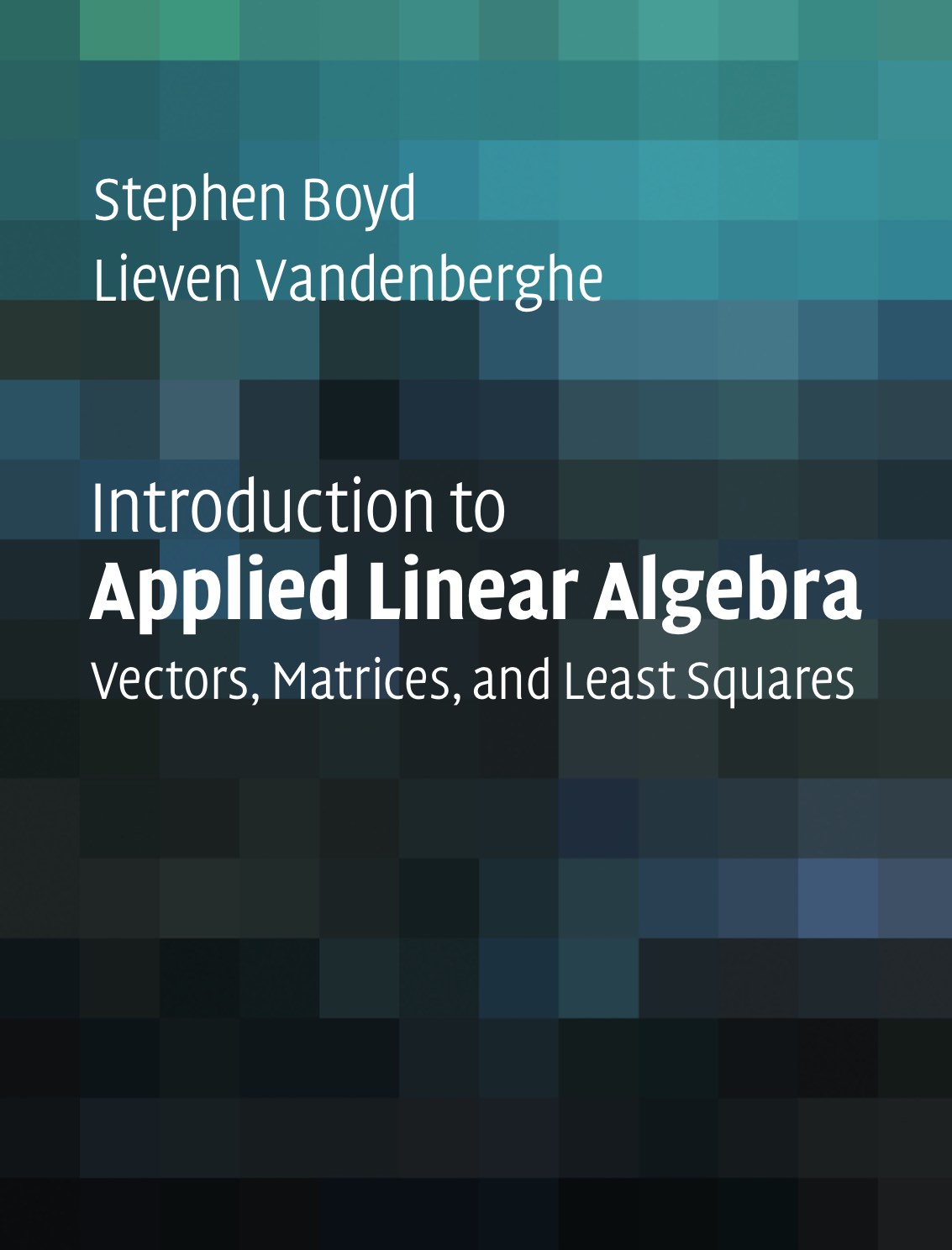What 📖
The Machine Learning Book Club is for practioners to read, work through, and discuss the topics, implications, and takeaways from curated machine learning books
The Machine Learning Book Club is for practioners to read, work through, and discuss the topics, implications, and takeaways from curated machine learning books
The goal of this book club is for practitioners to deepen their knowledge, collaborate, and discuss machine learning texts
By working through the examples and problems in the books, book club members will gain a deeper understanding of the craft.
We meet every Thursday at 6:30pm Central
Fill out the form below to be added to the email list meeting invite

Our goal is to give the beginning student, with little or no prior exposure to linear algebra, a good grounding in the basic ideas, as well as an appreciation for how they are used in many applications, including data fitting, machine learning and artificial intelligence, tomography, navigation, image processing, finance, and automatic control systems.
The background required of the reader is familiarity with basic mathematical notation. Even though the book covers many topics that are traditionally taught as part of probability and statistics, such as fitting mathematical models to data, no knowledge of or background in probability and statistics is needed.
We use only one theoretical concept from linear algebra, linear independence, and only one computational tool, the QR factorization; our approach to most applications relies on only one method, least squares (or some extension).... With just a few basic mathematical ideas, concepts, and methods, we cover many applications.
The mathematics we do present, however, is complete, in that we carefully justify every mathematical statement. In contrast to most introductory linear algebra texts, however, we describe many applications, including some that are typically considered advanced topics, like document classification, control, state estimation, and portfolio optimization.